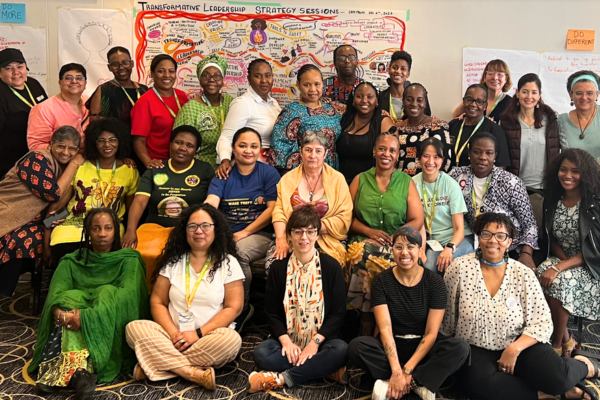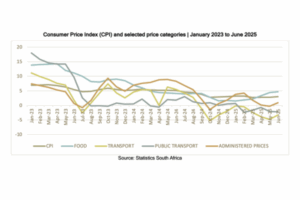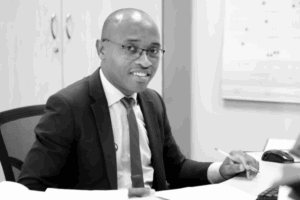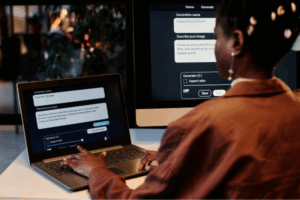Transformative Global Leadership Programme
LRS has a global recognition in transformative leadership through an academic partnership.
The culture of worker organisations and labour institutions – whether worker centres, trade unions or informal associations – reward patriarchal leadership practices and styles which keep women leaders out of the decision-making process. The COVID-19 pandemic exposed the isolation that women face in their leadership roles. This underscores the need for creating more spaces where women and gender-oppressed individuals can connect, share their stories, and receive support in developing their leadership capabilities.
The Transformative Global Leadership Programme (TGLP), a joint initiative of the Labour Research Service (LRS) and the Centre for Innovation in Worker Organisation (CIWO) at Rutgers University, aims to address this gap by exploring transformative practices and experimental approaches to leadership development with a gender frame as well as networking and movement building that attends to race and gender in the worker and economic justice movements.
In partnership with Education International, AFL-CIO, and other global economic justice organisations, we support women leaders in the labour movement through workshops, modules, surveys, and materials. We engage diverse leaders in conversations and interactive workshops to discuss intersectionality, transformative leadership, and authentic leadership practices. We focus on transforming exclusionary cultures in labour institutions, helping women leaders connect and innovate, especially during crises such as the COVID-19 pandemic.
"As an African woman, I'm guided by 'ubuntu,' fostering community care. A transformative leader encourages diverse perspectives and development for all genders. COVID-19 spurred us to seek non-militaristic, non-patriarchal, and democratic leadership models.”
Crecentia Mofokeng, Regional Representative for Africa, Building and Wood Workers’ International.
"We need an alternative model of leadership. We must reject the ‘pull-down syndrome’ and support each other defiantly. Effective leadership starts with claiming our space and asserting our ideas. Building spaces for transformative and feminist leadership is more important than ever. The new model we seek will have strong support, capacity, and solidarity."
Lorraine Ndlovu, President of Zimbabwe Chamber of Informal Economy Associations.
Leadership Journey Map
A notable outcome of the programme is the Leadership Journey Map, a visual mapping tool that helps amplify the diverse voices of women leaders. It provides a nurturing space on Zoom and WhatsApp where participants can intimately reflect upon their trajectories in leadership. Users navigate their experiences, drawing insights and connecting with peers traversing similar paths. More than a tool, it supports women excluded in decision-making due to patriarchal leadership practices in worker organisations. Over 300 women and nonbinary leaders, activists, and educators in a pilot used the tool to share their leadership experiences.
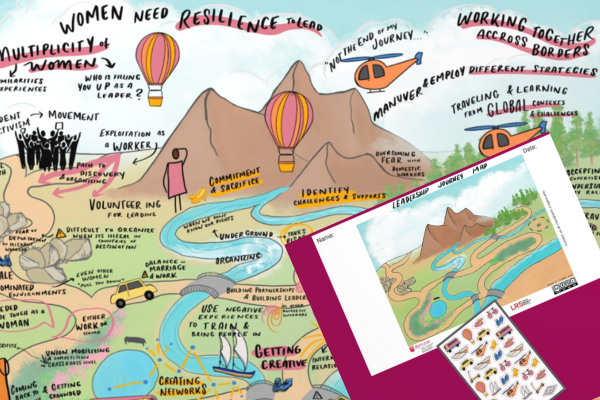
“We partnered with the LRS during the pandemic and grew and learned together, professionally and personally. LRS connected us with women leaders, labour activists, and like-minded organisations. This collaboration emphasised our ability to adapt, broaden perspectives, respond to emerging needs in real-time, and deepen our appreciation for feminist pedagogy."
Sheri Davis, Associate Director at the Center for Innovation in Worker Organisation.
TGLP Global Strategy Session in Cape Town - IFWEA conference Leadership Journey Map workshop
Over 70 participants at the 24th General Conference of the International Federation of Workers’ Education Association (IFWEA) experimented with the Leadership Journey Map facilitated by LRS and CIWO. One participant observed that the mapping workshop helped her recognise her leadership roles and moments she had led without realising it. The IFWEA conference workshop coincided with CIWO’s global strategy session, which discussed recommendations for achieving, sharing, and encouraging transformative leadership at individual and organisational levels.
The Leadership Journey Map exercise allowed participants to openly share their leadership journeys within unions, even in front of strangers. Typically, they don’t get such chances to reflect on their experiences. This space especially helps women to reflect on and share their leadership stories with confidence.
Explore the session experience through a flipbook available here.
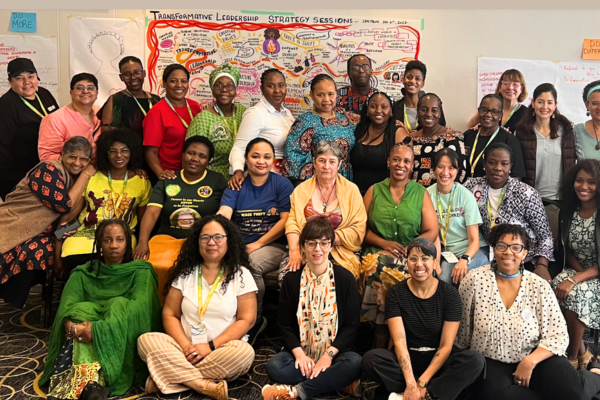
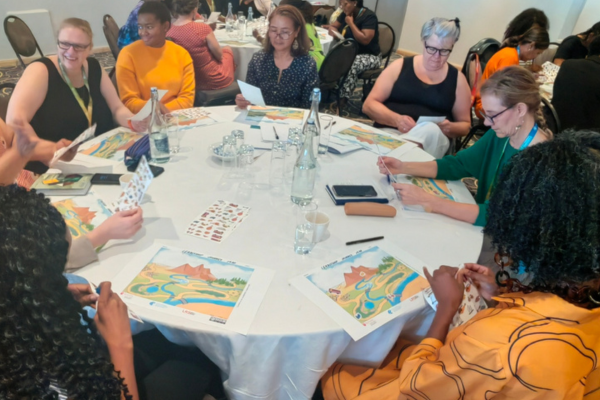
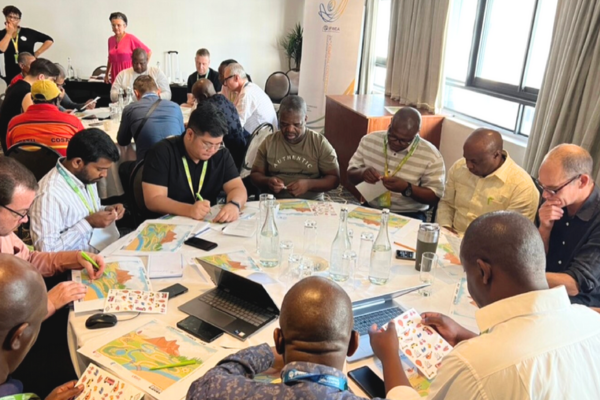
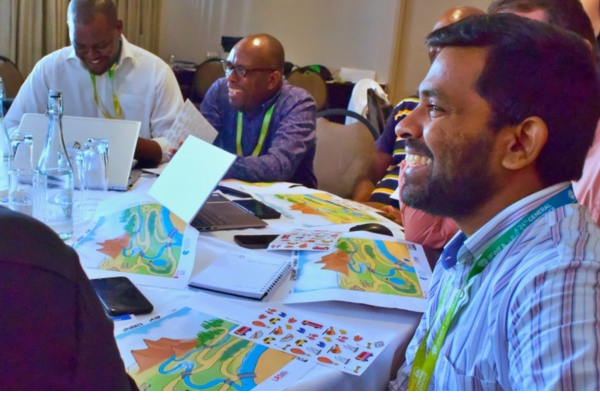
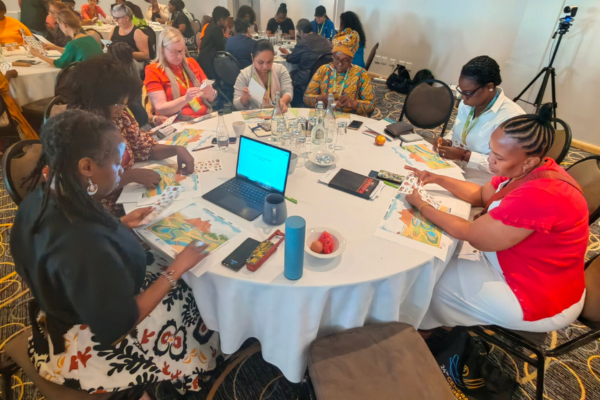
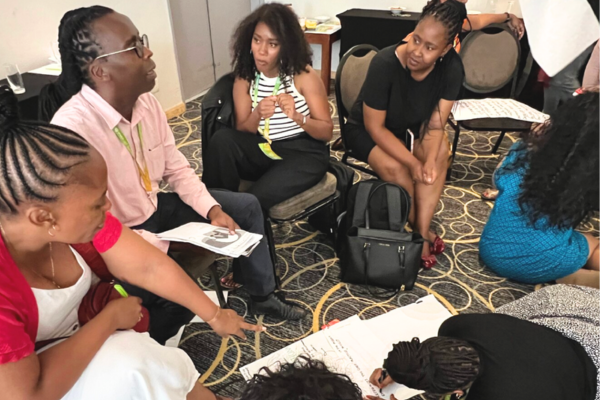
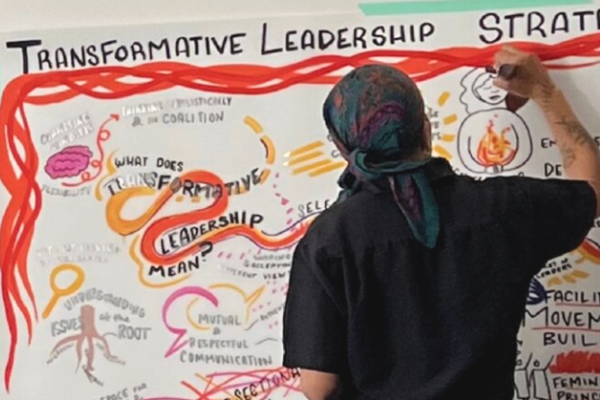
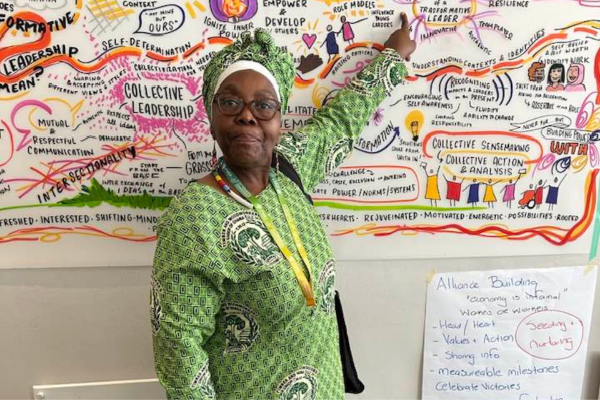
Photos: LRS/CIWO Global Strategy Session and workshop at IFWEA general conference in Cape Town in December 2023.
What does transformational leadership mean in your context? Views from strategy session participants:
- Transformative leadership challenges patriarchy, societal categories, and legislation that exclude certain sectors such as domestic workers, sex workers, and street vendors.
- Transformative leadership creates values and a culture of collaboration and collective leadership, transforming the context to a positive one.
- Transformative leadership is marked by the absence of male-dominated and top-down structures.
- Transformative leadership uses tools to ignite power and recognises human dignity.
- Transformative leadership should take an intersectional approach, considering the context in its analysis.
- There is a need to examine “transformation” from both outside and within.
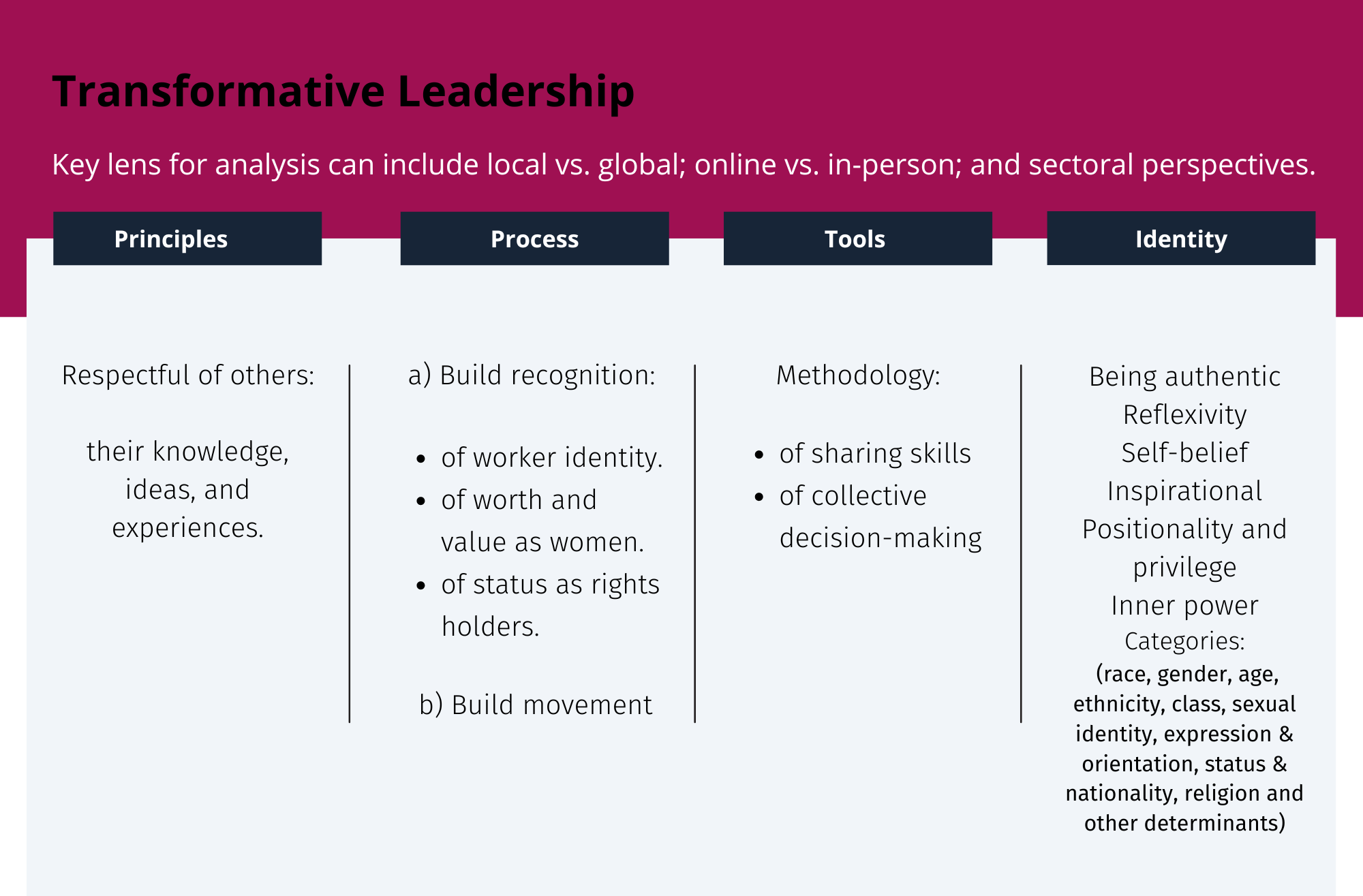
Feedback from TGLP global strategy session participants received via e-mail:
“Your team made us understand our worth in performing our role and how to be a successful transformative leader in our community and wherever we find ourselves leading a group. Thanks to you and everyone.”
Philomina Dadzie, Education International & Ghana National Association of Teachers
"Personally and as part of the HNI Executive, I thank you for this opportunity to learn and share experiences and knowledge with other wonderful women. ”
Tatiana Rojas, HomeNet International
We all seek to be and enable the development of transformational leaders. I got many insights that I will endeavor to apply to my personal and professional life. Looking forward to seeing what's next so we can take it further in an even more meaningful way.”
Imani Duncan, International Domestic Workers Federation
“It was truly transformative to meet worker educators. I was impressed by workers who have become educators. Workers and Allies is what we at SWASA and SANGRAM do too.”
Meena Seshu, Sex Workers and Allies South Asia (SWASA) and Sangram
The 46th Women’s Summer School at Rutgers - plenary session on gender-based violence in the workplace
140 people attended a plenary session hosted by CIWO, LRS, Gender at Work and the International Domestic Workers Federation on gender-based violence in the world of work and transformational leadership development. Facilitators introduced aspects of ILO Convention 190 (C190), discussed potential ways to implement the convention through Collective Bargaining Agreements and Occupational Health and Safety measures, and C190 as an organising tool.
"The Summer School was attended by women in worker organisations. It brought together rank-and-file members, staff, and officers of unions and workers’ rights organisations to develop their leadership skills and deepen their understanding of the U.S. labour movement. For the women workers attending, hearing about the ideas and strategies that unions across Africa are using to address gender-based violence, shared by LRS, was inspirational and strengthened their sense of international solidarity."
Nina Benjamin, Leader of the Transforming Unequal Gender Relations in the World of Work programme of LRS
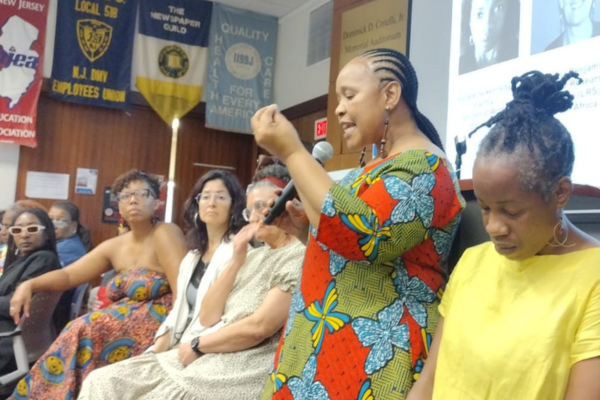
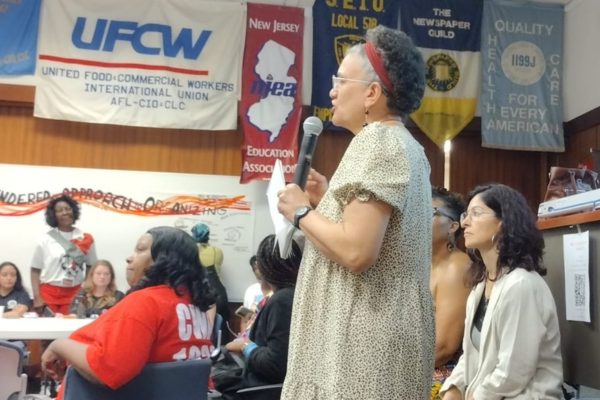
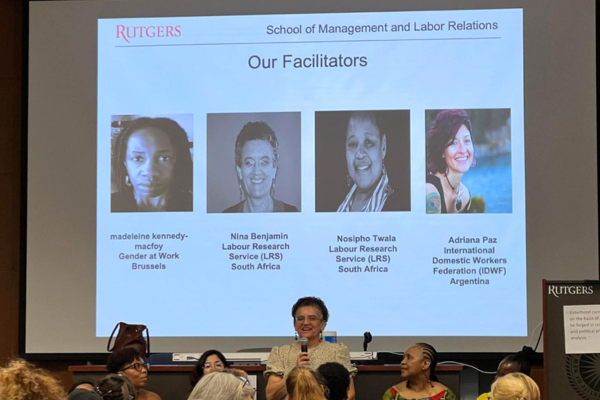
Photo: Nina Benjamin and Nosipho Twala of LRS at the 46th United Association For Labor Education (UALE) Northeast Regional Women’s Summer School at Rutgers University (July, 2023)
Key contact
Nina Benjamin | [email protected]


